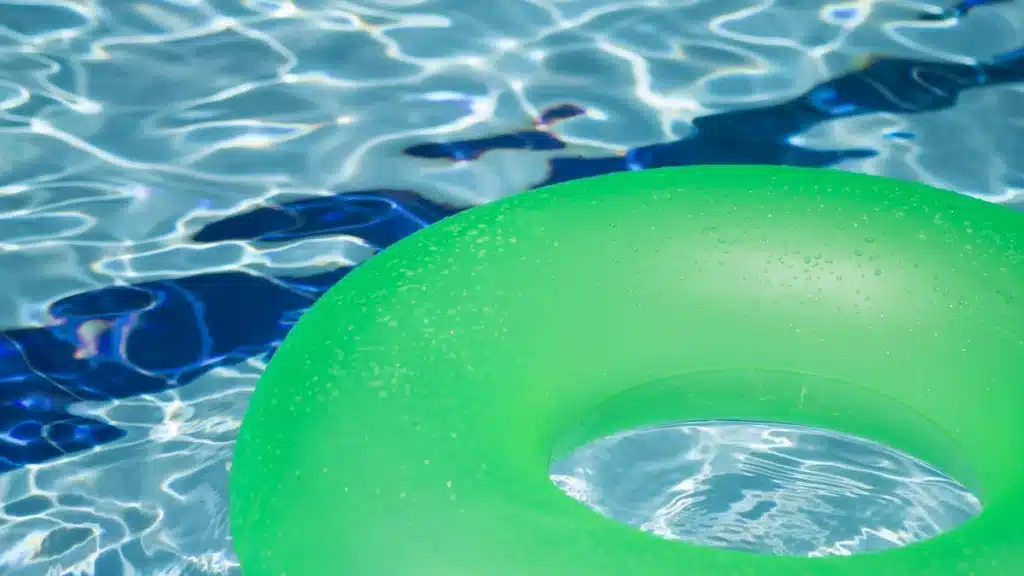Central Florida’s climate is often warm year-round, but that doesn’t mean you can skip winter pool maintenance. Preparing your pool properly for the cooler months helps maintain water quality, protect your equipment, and make it easier to reopen when temperatures rise again. This guide will walk you through the essential steps to get your Central Florida pool ready for winter, ensuring that it stays in peak condition throughout the season.
Why Winter Preparation is Important for Central Florida Pools
Understanding Central Florida’s Winter Climate
While Central Florida doesn’t experience harsh winters like some other parts of the country, temperatures can drop significantly during the colder months. These lower temperatures, combined with the typical reduction in pool use, mean that taking steps to winterize your pool is a good idea. Proper winter preparation helps prevent algae growth and keeps your pool cleaner, saving you time and money when it’s time to swim again.
The Benefits of Winterizing Your Central Florida Pool
Winterizing your pool provides several key benefits, including preserving the life of your pool equipment and preventing costly repairs. By keeping your water clean and balanced during the winter months, you avoid the buildup of debris and algae, which can otherwise lead to problems like damaged filters or clogged pumps. Regular maintenance now can prevent bigger headaches in the spring.

Guide to Prepping Your Central Florida Pool for Cooler Months
Cleaning and Balancing Water Chemistry
Before you begin the winterization process, thoroughly clean your pool by removing any leaves or debris. Brush the pool walls and floor to loosen any dirt, and vacuum to ensure your pool is free of contaminants. Cleaning your pool thoroughly now means fewer problems later.
Once your pool is clean, it’s important to balance the water chemistry. Adjust the pH level to between 7.2 and 7.6, and ensure that alkalinity and calcium hardness levels are within the recommended range. Balanced water helps prevent corrosion and scale buildup during the colder months.
Adjusting Water Levels and Covering the Pool
Next, adjust the pool’s water level. In Central Florida, there is no need to drain the pool completely. Instead, lower it to about half an inch below the skimmer opening. This helps protect the skimmer from any potential damage.
Covering your pool is an important final step. Choose a quality cover that fits well and keeps out leaves, dirt, and other debris. Pool covers are particularly useful during windy winter months because the wind blows more leaves and debris into the pool area.
Essential Pool Equipment Checks Before Winter
Inspecting Pumps, Filters, and Heaters
Properly inspecting your pool equipment before winter is crucial for avoiding costly repairs down the line. Start by checking the pump and filter to ensure they are functioning properly. If necessary, backwash the filter and clean any cartridges.
Heaters should also be checked to confirm they are in good working order. While you may not use your pool heater during the winter, having it inspected can help avoid issues when the weather warms up and you want to use your pool again.
Tips for Maintaining Equipment Longevity
To extend the life of your pool equipment, ensure that all parts are properly stored or secured. If possible, detach any easily removable parts, like pressure gauges or pool vacuums, and store them in a safe, dry place. This will protect your equipment from any unexpected temperature drops.
It’s also a good idea to run your pump for a few hours each day to keep the water circulating, which helps prevent stagnation and algae growth.
Best Practices for Using Pool Covers in Central Florida Pools
Choosing the Right Cover for Local Weather Conditions
In Central Florida, a pool cover must be durable enough to withstand occasional storms while also being easy to manage. Mesh covers work well in this climate as they keep out debris while allowing rainwater to drain through. Alternatively, a solid cover provides added protection but may require a cover pump to prevent water accumulation.
Selecting the right cover will ensure your pool remains clean and protected throughout the winter months.
Ensuring Proper Cover Maintenance on Your Central Florida Pool
Once your pool is covered, regular checks are essential. Make sure the cover stays securely in place and is free of tears or damage. Clean any accumulated leaves or debris from the cover surface to prevent them from adding weight and causing damage.
Maintaining your pool cover correctly will keep it in good condition, allowing it to last for years and ensuring your pool stays protected through the winter.
The Importance of Pool Fences for Safety During Winter
Preventing Accidents with Children and Animals
While pool covers are essential for keeping your pool clean during the winter, they do not provide complete safety. Children and animals can accidentally fall onto a pool cover, which can pose a serious risk if the cover is not properly secured or is unable to support their weight. Installing a pool fence adds an extra layer of protection, ensuring that children and pets cannot access the pool area without supervision.
A sturdy pool fence helps to prevent tragic accidents, giving you peace of mind even when your pool is not in use. In Central Florida, where pools are common, having a proper safety barrier is a critical part of responsible pool ownership.
Meeting Local Safety Requirements
In many areas, including Central Florida, pool fences are often required by law to meet specific safety standards. These regulations are in place to protect both residents and visitors. A compliant pool fence should be at least four feet high, with a self-closing, self-latching gate to prevent easy access by young children.
Ensuring your pool fence meets these requirements not only keeps your family safe but also helps you avoid potential fines or legal issues.
Maintaining Your Pool During the Winter Season
Keeping the Pool Clean When It’s Not in Use
Even though your pool may be covered and not in use, occasional cleaning is still important. Remove the cover every few weeks to skim the water and ensure there is no buildup of dirt or algae. This quick check will save you a lot of effort when the swimming season returns.
Additionally, consider adding an algaecide to the water as part of your winter maintenance routine. Algaecides can help prevent algae growth and keep the water looking clear, reducing the workload when it’s time to reopen the pool.
Monitoring Water Chemistry Through the Winter
Continue to check your water chemistry every few weeks during the winter months. Pay attention to the chlorine and pH levels to ensure they remain within the ideal range. Even during the off-season, water quality is important for the health of your pool.
By keeping an eye on water chemistry, you can prevent common issues like algae or calcium buildup, which can make pool opening more complicated and time-consuming.
Conclusion on Winter Maintenance for Central Florida Pool
Properly preparing your Central Florida pool for winter ensures it remains clean, safe, and ready to use when temperatures warm up again. While winter in Central Florida may not be severe, taking time to clean, balance, and protect your pool helps avoid costly repairs and unnecessary headaches. By following these steps—cleaning, balancing chemistry, checking equipment, and using the right cover—you’ll keep your pool in excellent condition all year long.






